Every day from 10 to 6, we’d go in there and pretend that we were 13 year old girls and write these songs. That was the gig.
AL KOOPEROnly through sheer ambition did I end up playing on [Bob Dylan sessions] and the fact that I could do that is a testament to how disorganized it really was.
More Al Kooper Quotes
-





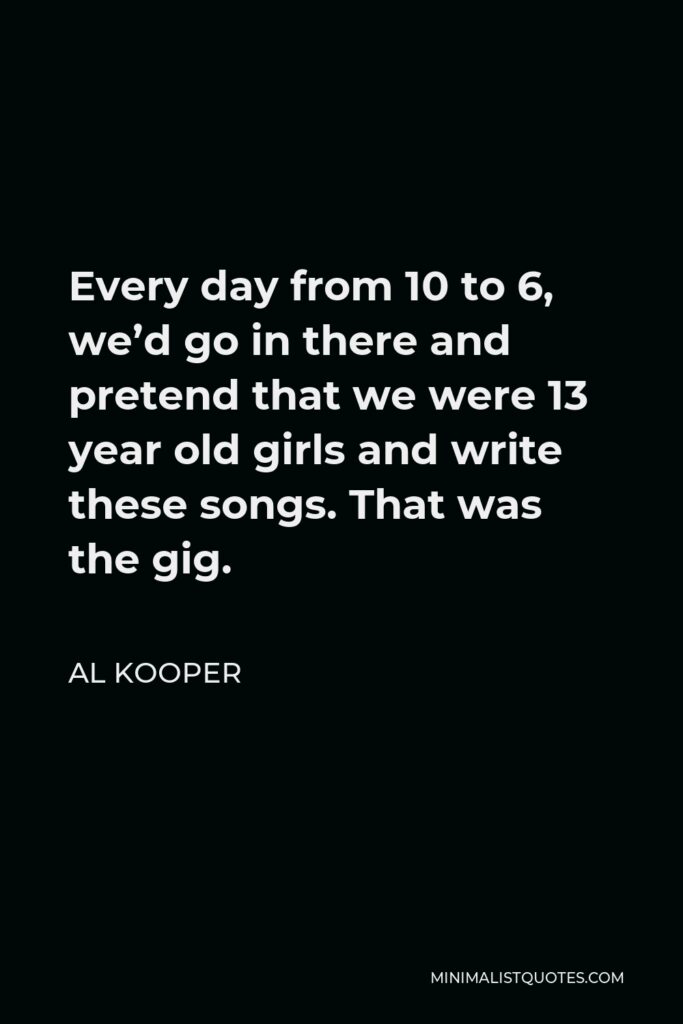

-





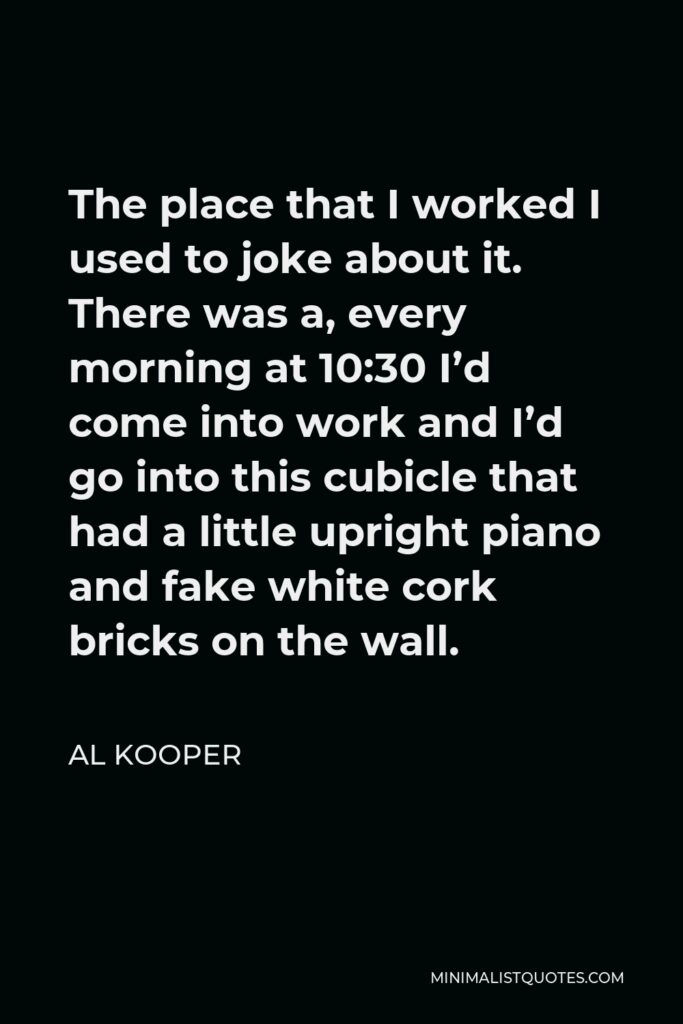

The place that I worked I used to joke about it. There was a, every morning at 10:30 I’d come into work and I’d go into this cubicle that had a little upright piano and fake white cork bricks on the wall.
AL KOOPER -





![Al Kooper Quote - I think it was Columbia politics, Columbia Records politics that, that, Tom Wilson left [Bob Dylan] after “Like A Rolling Stone”.](https://minimalistquotes.com/wp-content/uploads/2022/07/i-think-it-was-columbia-politics-columbia-records--683x1024.jpg)

I think it was Columbia politics, Columbia Records politics that, that, Tom Wilson left [Bob Dylan] after “Like A Rolling Stone”.
AL KOOPER -





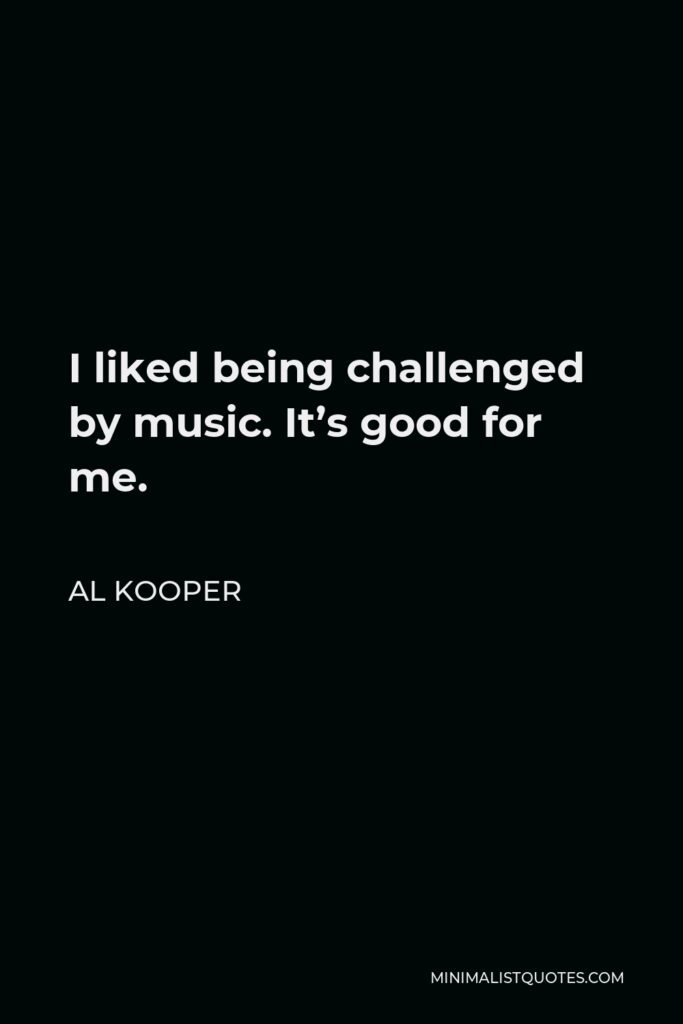

I liked being challenged by music. It’s good for me.
AL KOOPER -





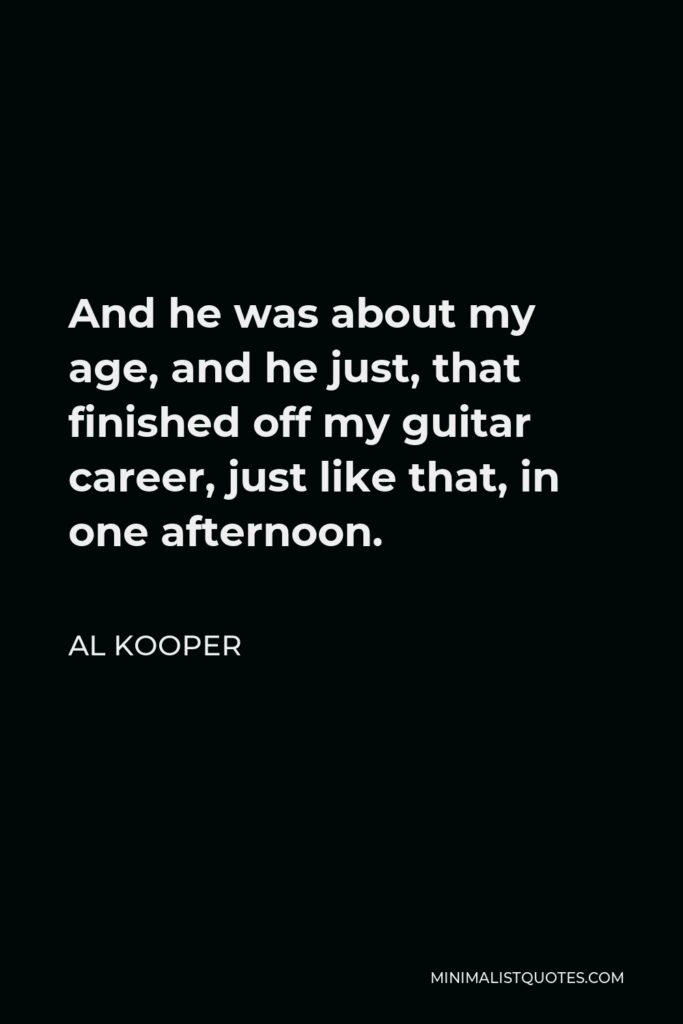

And he was about my age, and he just, that finished off my guitar career, just like that, in one afternoon.
AL KOOPER -







Finally a breath of fresh words founded in hardcore, intelligent research.
AL KOOPER -





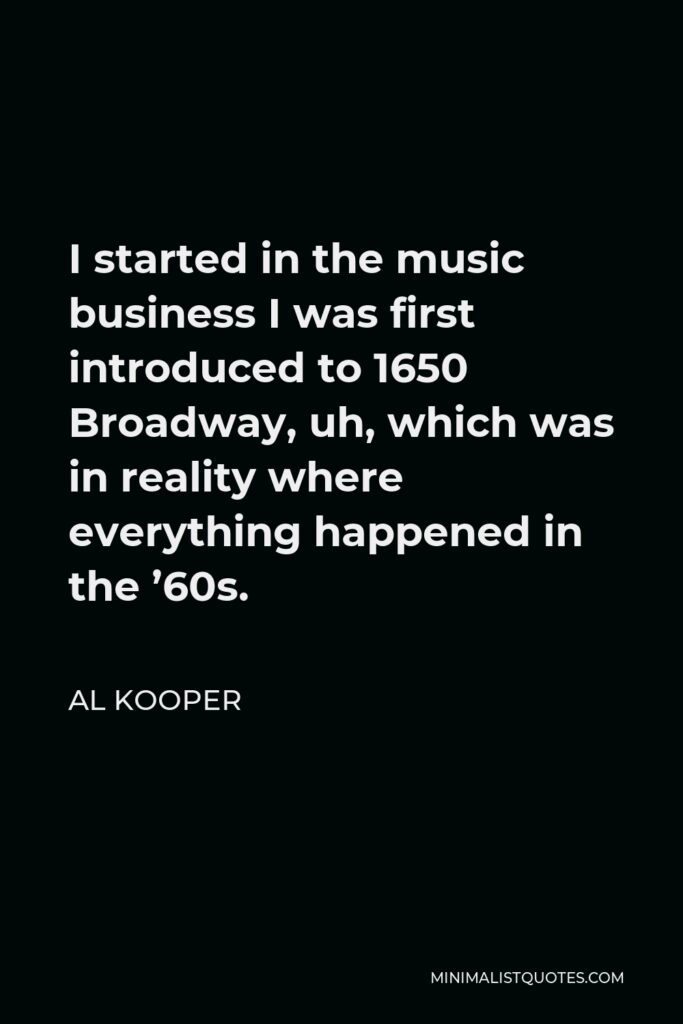

I started in the music business I was first introduced to 1650 Broadway, uh, which was in reality where everything happened in the ’60s.
AL KOOPER -





![Al Kooper Quote - The first generation from the ’50s that were in 1650 [Broadway] were pretty much all crooks,](https://minimalistquotes.com/wp-content/uploads/2022/07/the-first-generation-from-the-50s-that-were-in-165-683x1024.jpg)

The first generation from the ’50s that were in 1650 [Broadway] were pretty much all crooks,
AL KOOPER -





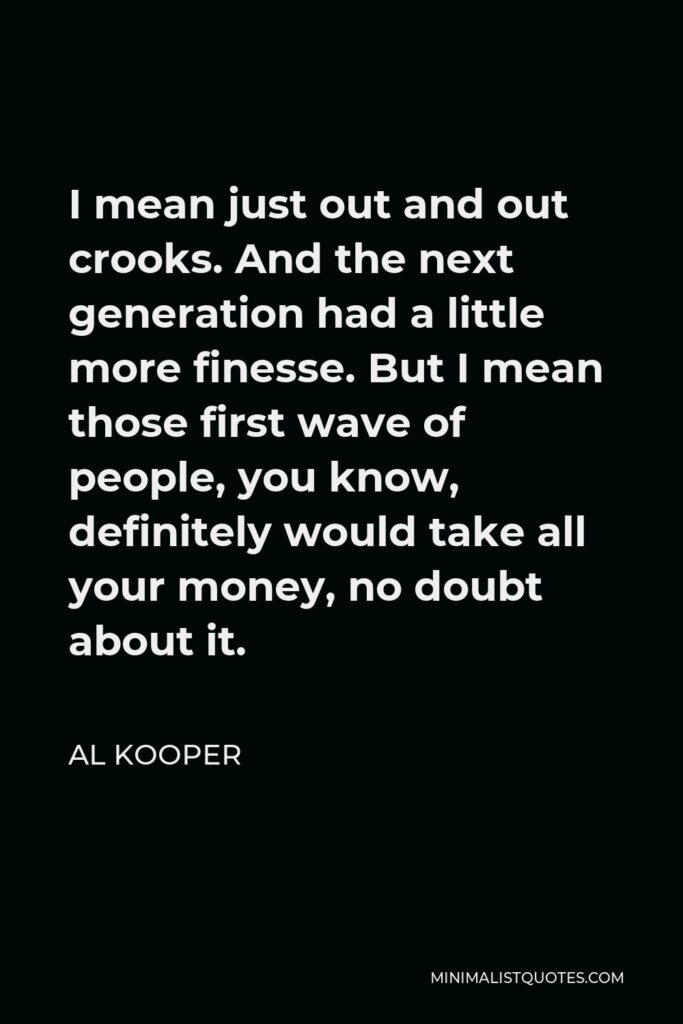

I mean just out and out crooks. And the next generation had a little more finesse. But I mean those first wave of people, you know, definitely would take all your money, no doubt about it.
AL KOOPER -





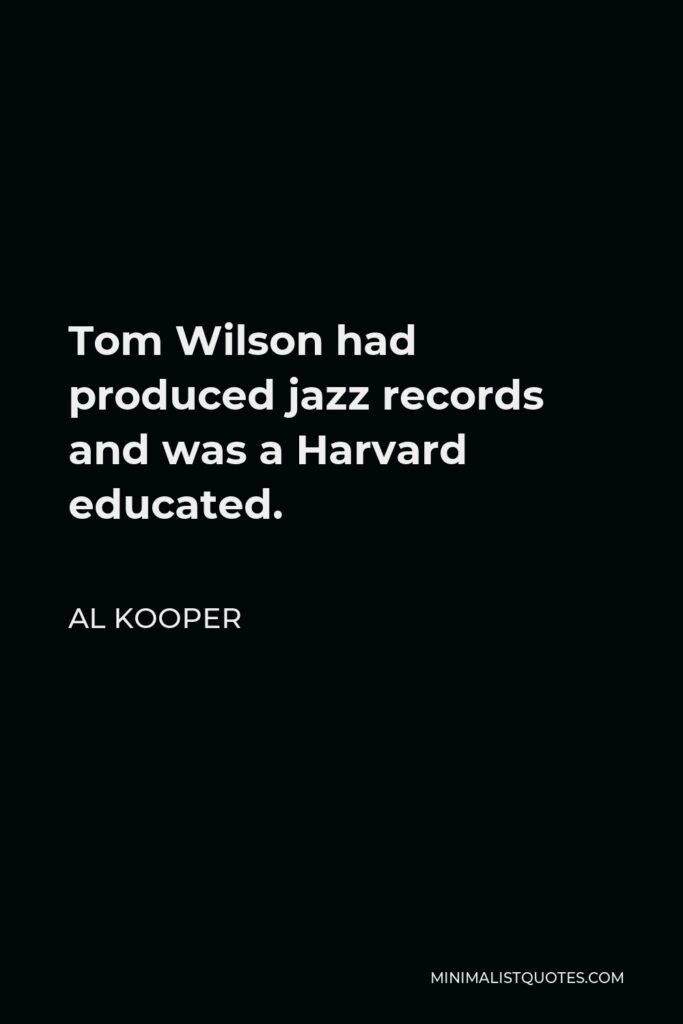

Tom Wilson had produced jazz records and was a Harvard educated.
AL KOOPER -





![Al Kooper Quote - The [Bob] Dylan sessions were very disorganized, to say the least. I mean, the “Like A Rolling Stone” session I was invited by the producer to watch.](https://minimalistquotes.com/wp-content/uploads/2022/07/the-bob-dylan-sessions-were-very-disorganized-to-s-683x1024.jpg)

The [Bob] Dylan sessions were very disorganized, to say the least. I mean, the “Like A Rolling Stone” session I was invited by the producer to watch.
AL KOOPER -





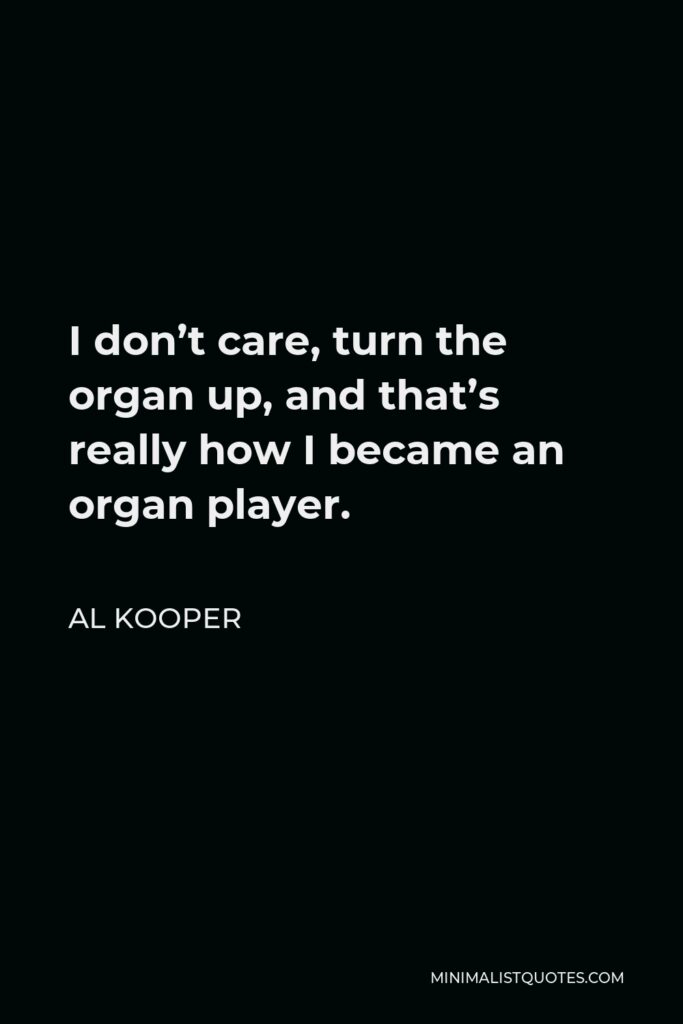

I don’t care, turn the organ up, and that’s really how I became an organ player.
AL KOOPER -







Bob Dylan said to the producer, turn up the organ. And Tom Wilson said, oh man, that guy’s not an organ player. And Dylan said.
AL KOOPER -





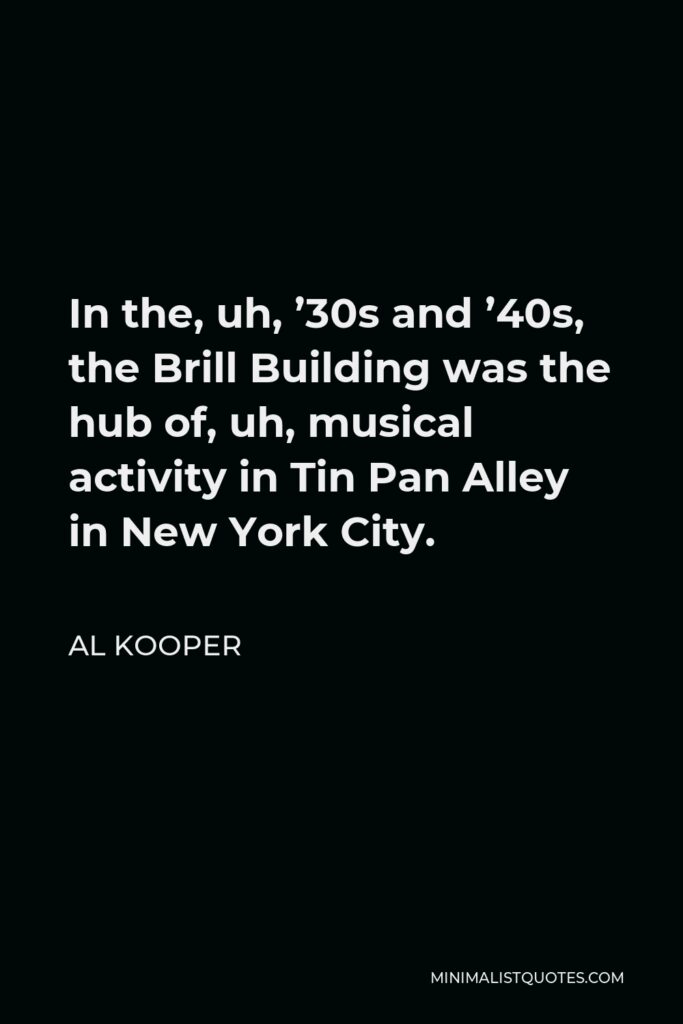

In the, uh, ’30s and ’40s, the Brill Building was the hub of, uh, musical activity in Tin Pan Alley in New York City.
AL KOOPER -





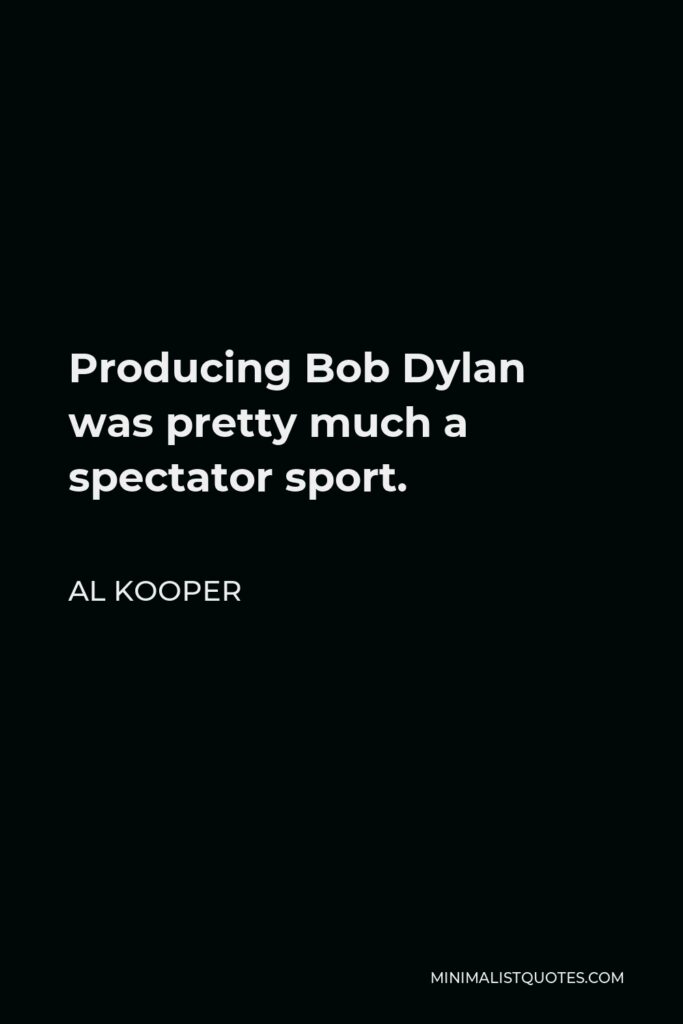

Producing Bob Dylan was pretty much a spectator sport.
AL KOOPER -





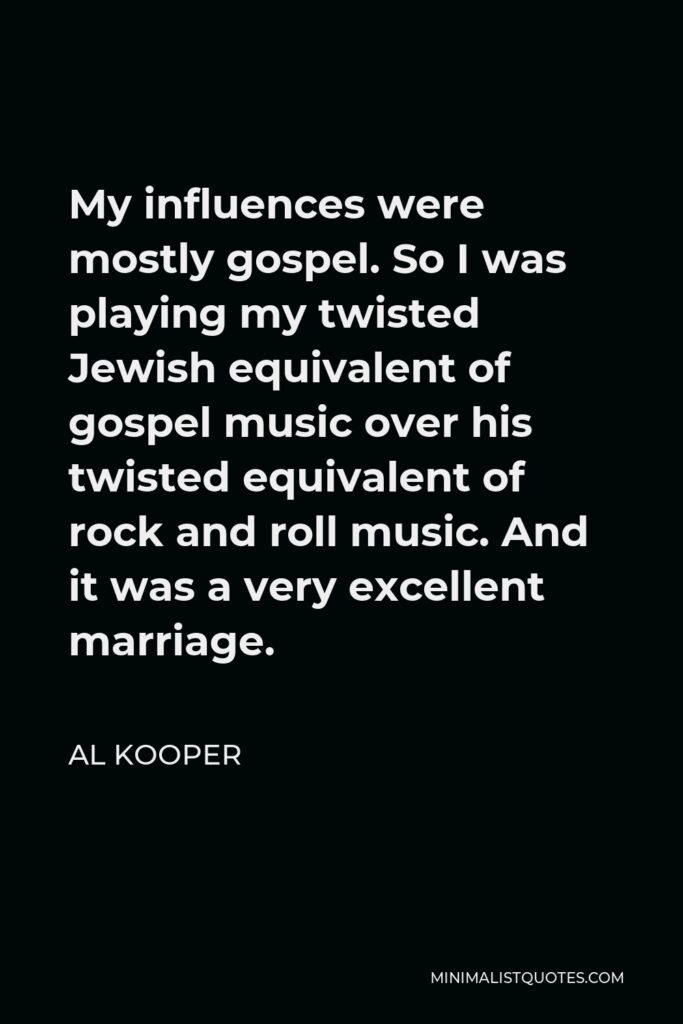

My influences were mostly gospel. So I was playing my twisted Jewish equivalent of gospel music over his twisted equivalent of rock and roll music. And it was a very excellent marriage.
AL KOOPER
![Al Kooper Quote - Only through sheer ambition did I end up playing on [Bob Dylan sessions] and the fact that I could do that is a testament to how disorganized it really was.](https://minimalistquotes.com/wp-content/uploads/2022/07/only-through-sheer-ambition-did-i-end-up-playing-o.jpg)
![Al Kooper Quote - Only through sheer ambition did I end up playing on [Bob Dylan sessions] and the fact that I could do that is a testament to how disorganized it really was.](https://minimalistquotes.com/images/grey-only-through-sheer-ambition-did-i-end-up.jpg)
![Al Kooper Quote - Only through sheer ambition did I end up playing on [Bob Dylan sessions] and the fact that I could do that is a testament to how disorganized it really was.](https://minimalistquotes.com/images/blue-only-through-sheer-ambition-did-i-end-up.jpg)
![Al Kooper Quote - Only through sheer ambition did I end up playing on [Bob Dylan sessions] and the fact that I could do that is a testament to how disorganized it really was.](https://minimalistquotes.com/images/red-only-through-sheer-ambition-did-i-end-up.jpg)
![Al Kooper Quote - Only through sheer ambition did I end up playing on [Bob Dylan sessions] and the fact that I could do that is a testament to how disorganized it really was.](https://minimalistquotes.com/images/brown-only-through-sheer-ambition-did-i-end-up.jpg)
![Al Kooper Quote - Only through sheer ambition did I end up playing on [Bob Dylan sessions] and the fact that I could do that is a testament to how disorganized it really was.](https://minimalistquotes.com/images/white-only-through-sheer-ambition-did-i-end-up.jpg)

